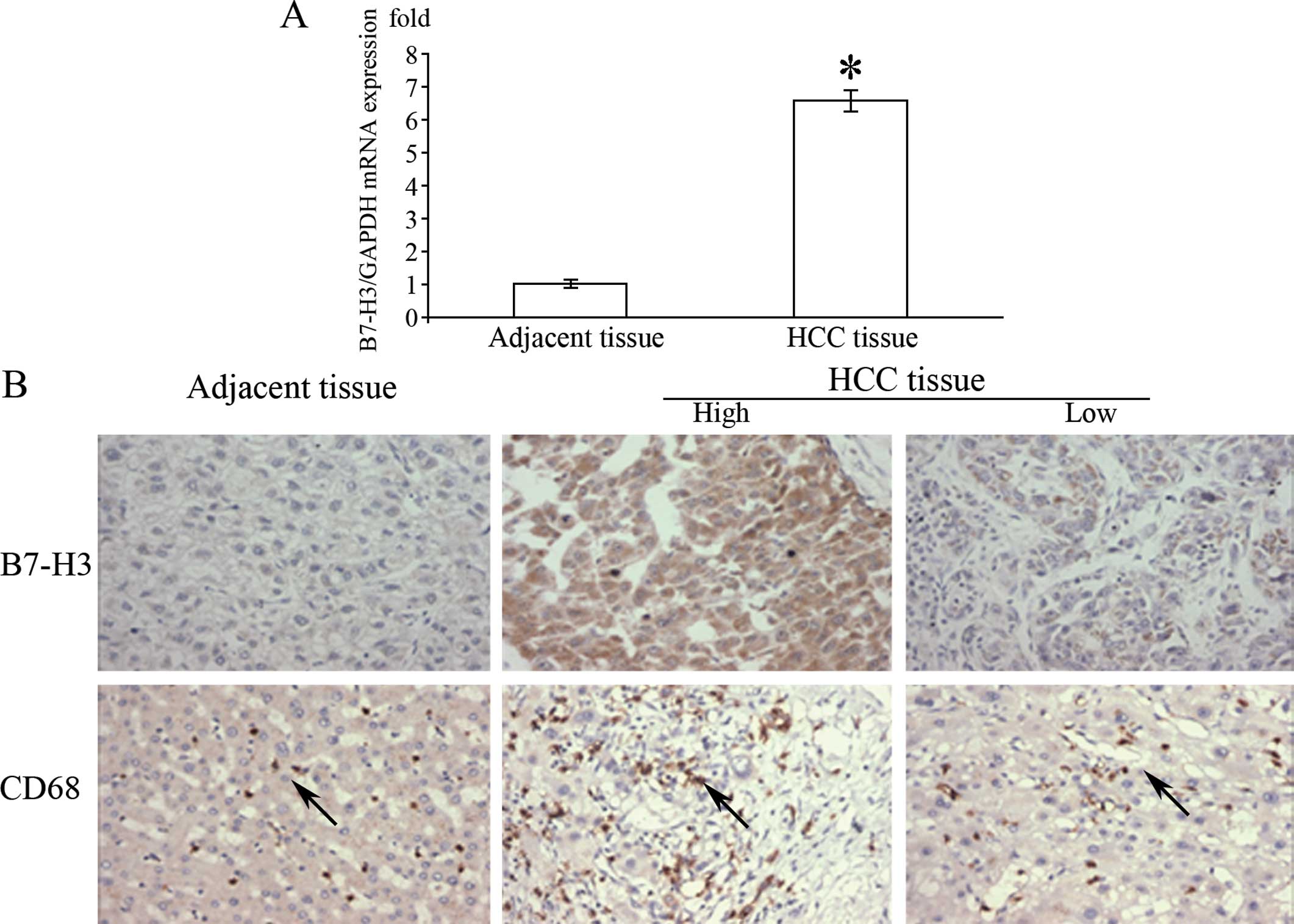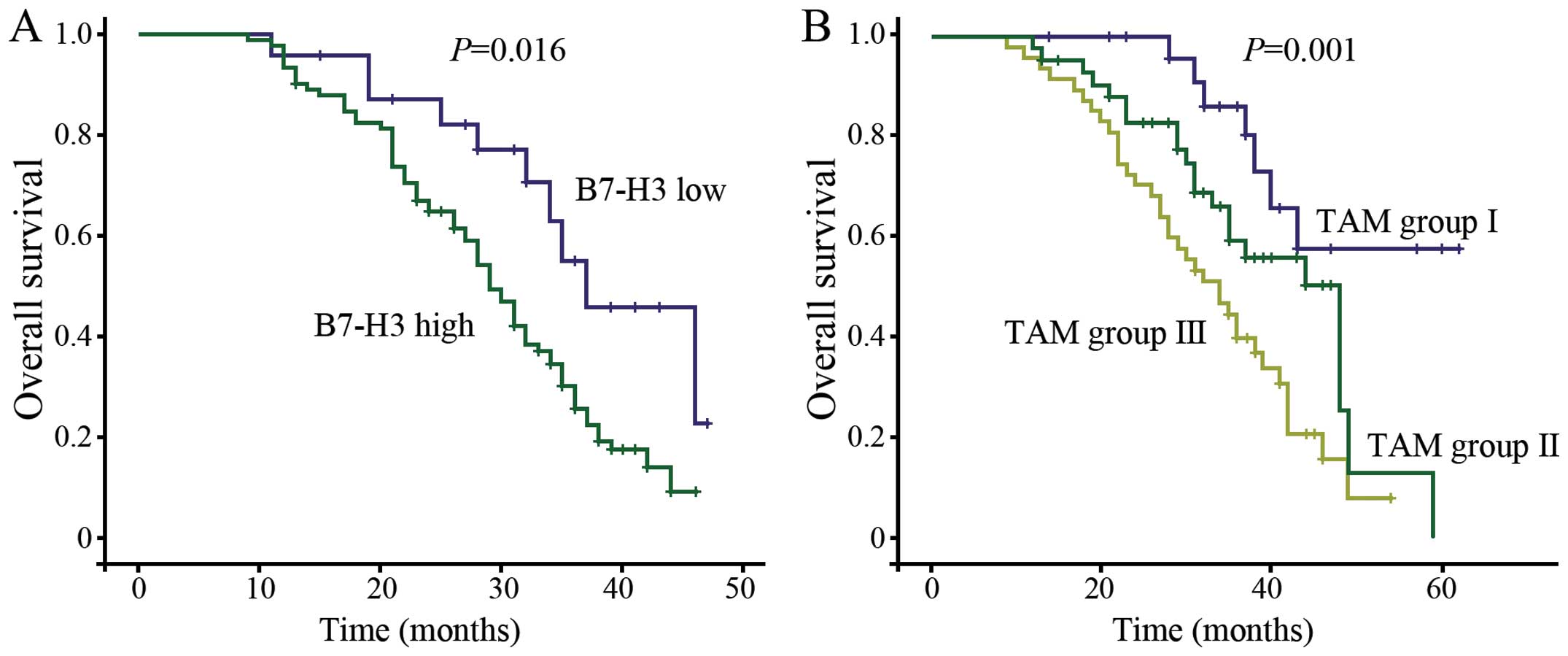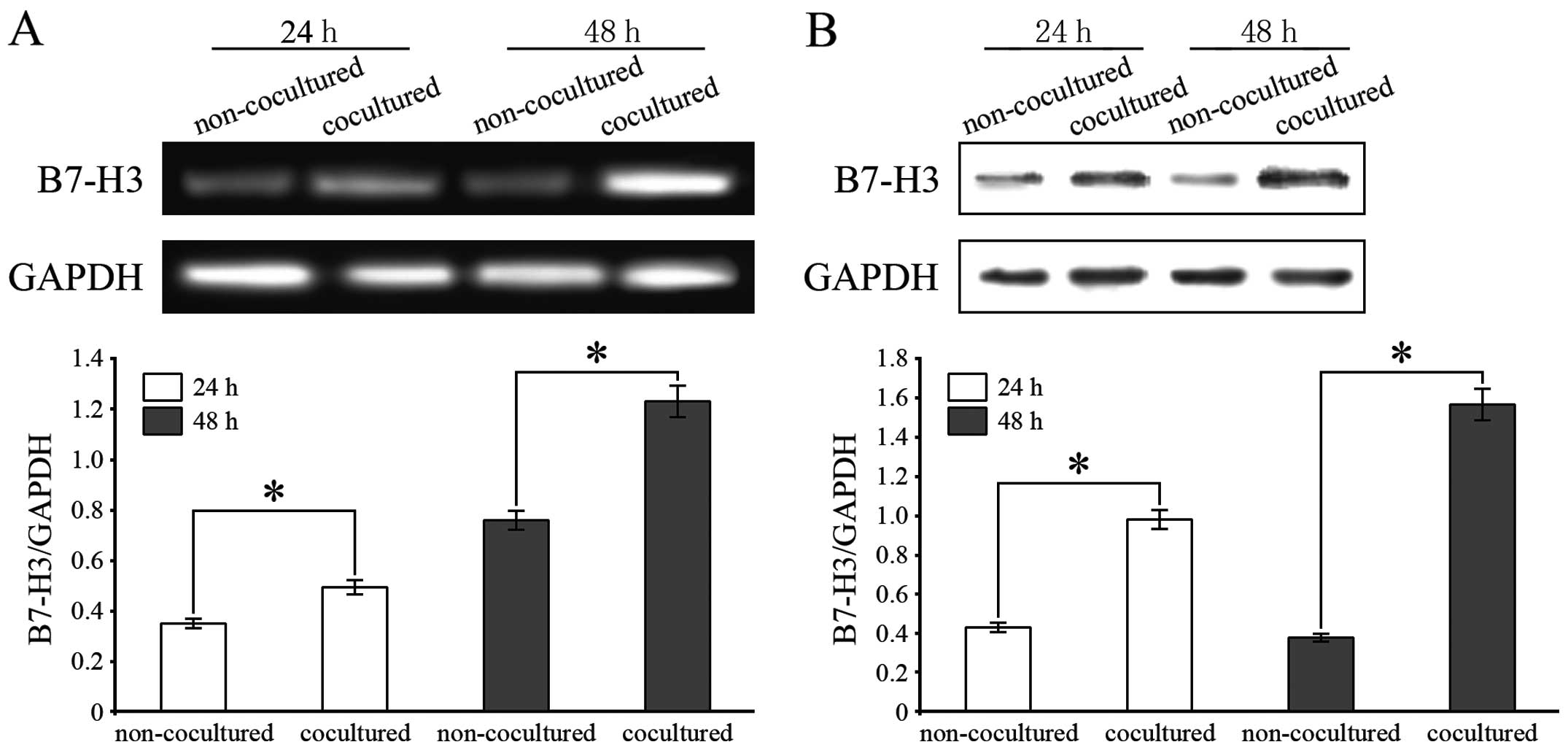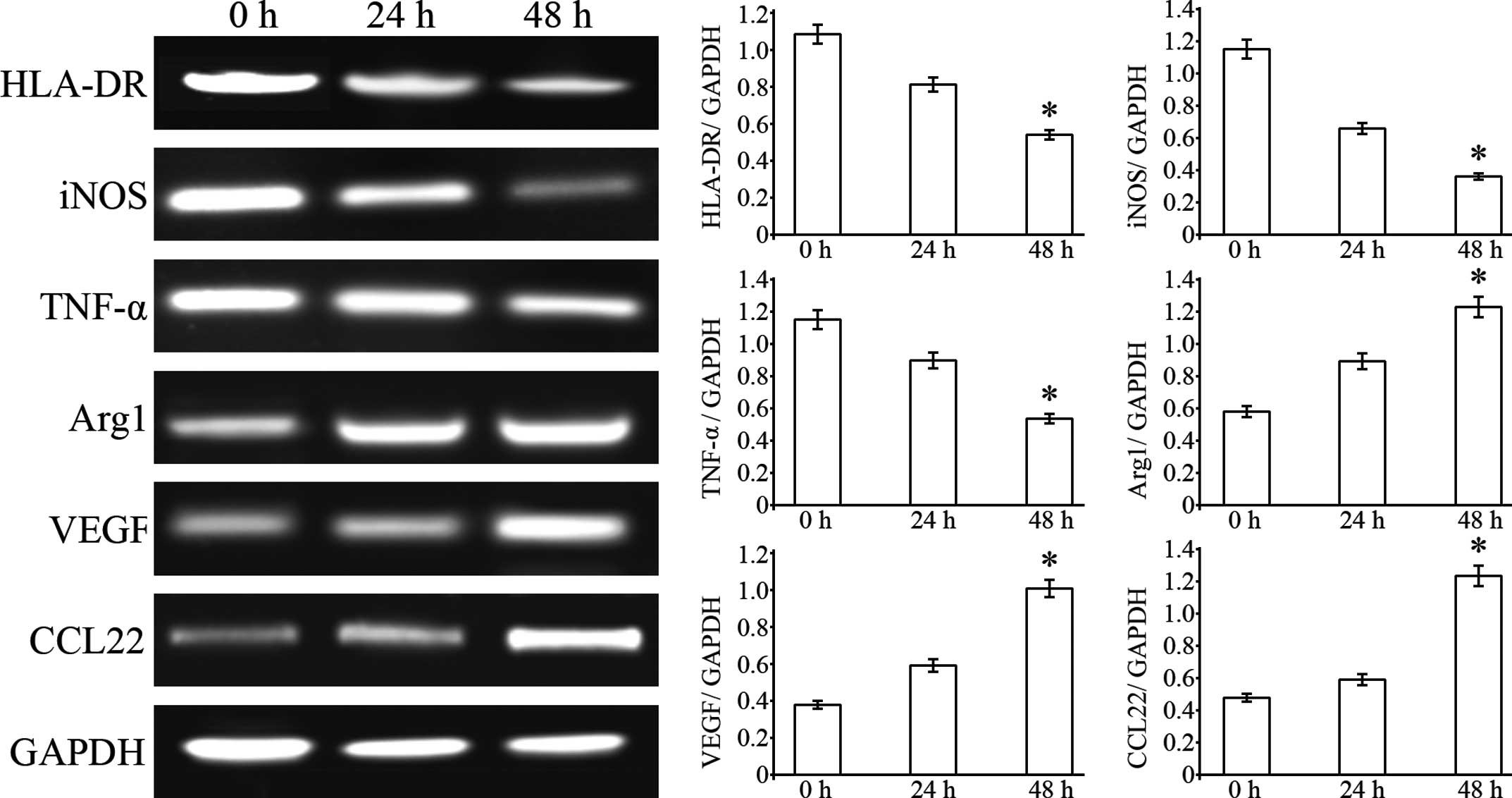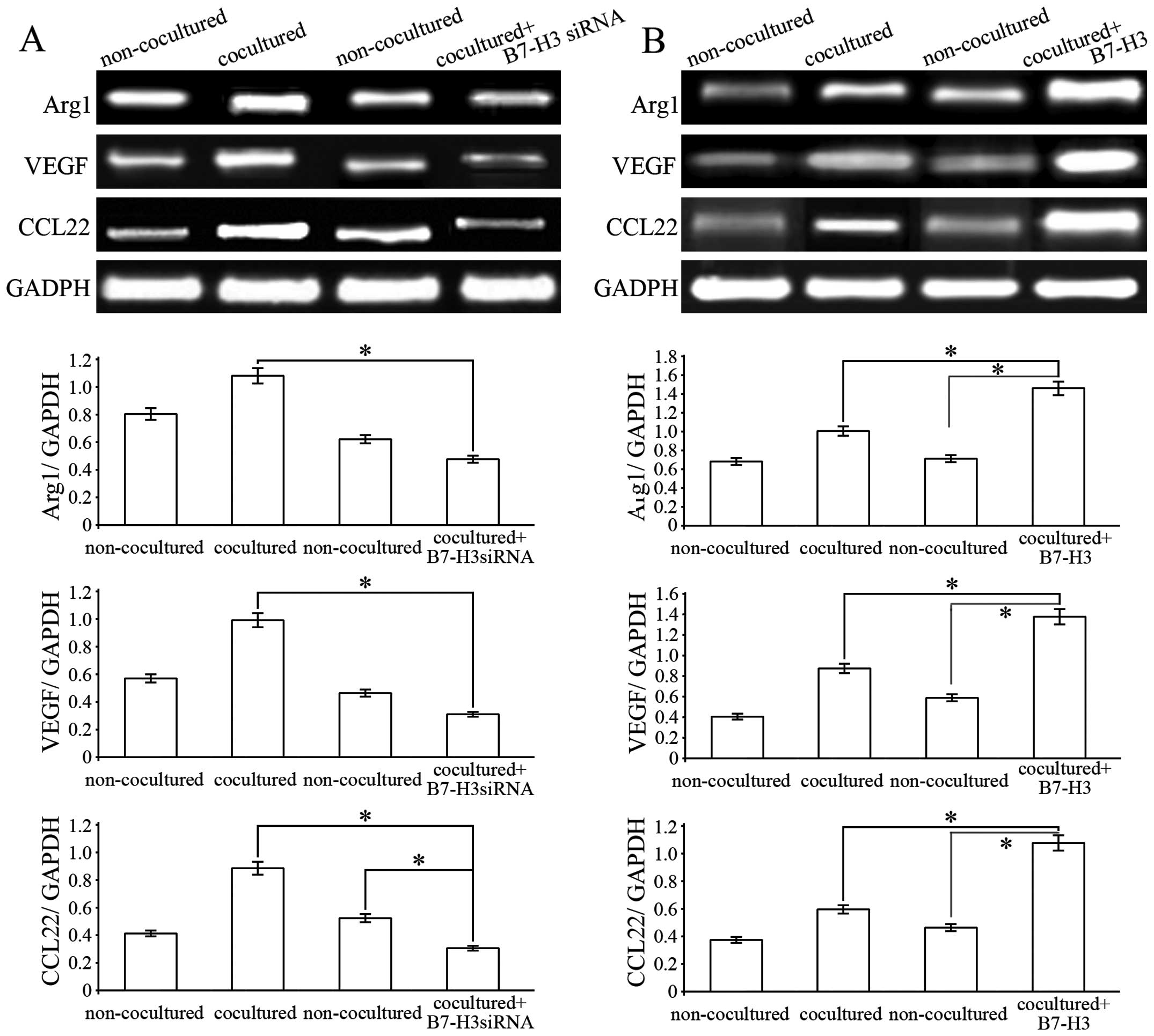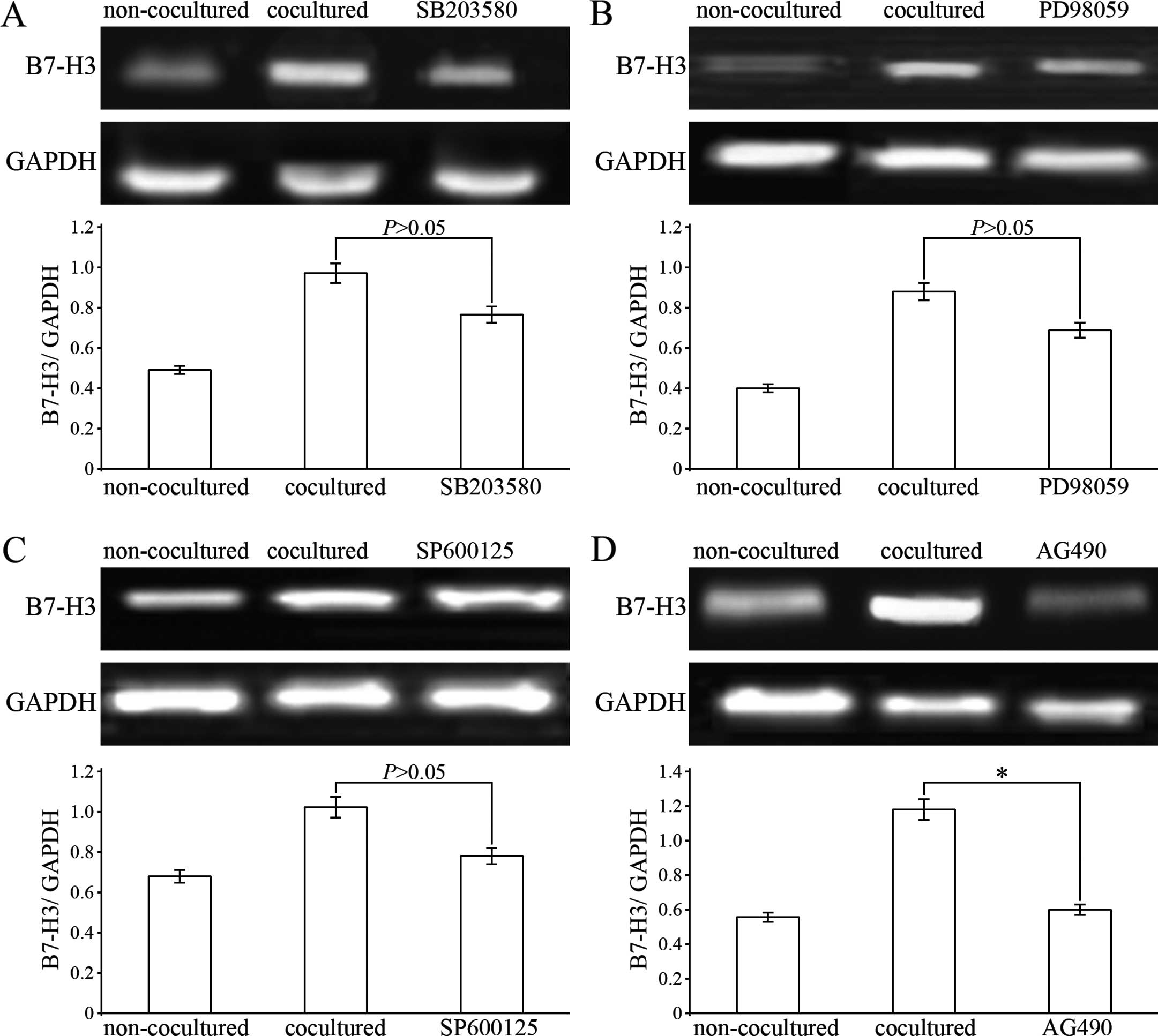|
1
|
Flores A and Marrero JA: Emerging trends
in hepatocellular carcinoma: focus on diagnosis and therapeutics.
Clin Med Insights Oncol. 8:71–76. 2014.PubMed/NCBI
|
|
2
|
Abdel-Rahman O: Systemic therapy for
hepatocellular carcinoma (HCC): from bench to bedside. J Egypt Natl
Canc Inst. 25:165–171. 2013. View Article : Google Scholar : PubMed/NCBI
|
|
3
|
Salomao M, Remotti H, Vaughan R, Siegel
AB, Lefkowitch JH and Moreira RK: The steatohepatitic variant of
hepatocellular carcinoma and its association with underlying
steatohepatitis. Hum Pathol. 43:737–746. 2012. View Article : Google Scholar
|
|
4
|
Forner A, Llovet JM and Bruix J:
Hepatocellular carcinoma. Lancet. 379:1245–1255. 2012. View Article : Google Scholar : PubMed/NCBI
|
|
5
|
Rossi L, Zoratto F, Papa A, et al: Current
approach in the treatment of hepatocellular carcinoma. World J
Gastrointest Oncol. 2:348–359. 2010. View Article : Google Scholar : PubMed/NCBI
|
|
6
|
Palmer DH, Midgley RS, Mirza N, et al: A
phase II study of adoptive immunotherapy using dendritic cells
pulsed with tumor lysate in patients with hepatocellular carcinoma.
Hepatology. 49:124–132. 2009. View Article : Google Scholar
|
|
7
|
Hernandez-Gea V, Alsinet C and Llovet JM:
Oncolytic immunotherapeutic virus in HCC: can it compete with
molecular therapies? J Hepatol. 59:882–884. 2013. View Article : Google Scholar : PubMed/NCBI
|
|
8
|
Ceeraz S, Nowak EC and Noelle RJ: B7
family checkpoint regulators in immune regulation and disease.
Trends Immunol. 34:556–563. 2013. View Article : Google Scholar : PubMed/NCBI
|
|
9
|
Sun TW, Gao Q, Qiu SJ, et al: B7-H3 is
expressed in human hepatocellular carcinoma and is associated with
tumor aggressiveness and postoperative recurrence. Cancer Immunol
Immunother. 61:2171–2182. 2012. View Article : Google Scholar : PubMed/NCBI
|
|
10
|
Wang F, Wang G, Liu T, Yu G, Zhang G and
Luan X: B7-H3 was highly expressed in human primary hepatocellular
carcinoma and promoted tumor progression. Cancer Invest.
32:262–271. 2014. View Article : Google Scholar : PubMed/NCBI
|
|
11
|
Geng L, Deng J, Jiang G, et al: B7-H1
up-regulated expression in human hepatocellular carcinoma tissue:
correlation with tumor interleukin-10 levels.
Hepatogastroenterology. 58:960–964. 2011.PubMed/NCBI
|
|
12
|
Wang L, Kang FB and Shan BE:
B7-H3-mediated tumor immunology: friend or foe? Int J Cancer.
134:2764–2771. 2014. View Article : Google Scholar
|
|
13
|
Chapoval AI, Ni J, Lau JS, et al: B7-H3: a
costimulatory molecule for T cell activation and IFN-γ production.
Nat Immunol. 2:269–274. 2001. View
Article : Google Scholar : PubMed/NCBI
|
|
14
|
Chen W, Liu P, Wang Y, et al:
Characterization of a soluble B7-H3 (sB7-H3) spliced from the
intron and analysis of sB7-H3 in the sera of patients with
hepatocellular carcinoma. PLoS One. 8:e769652013. View Article : Google Scholar : PubMed/NCBI
|
|
15
|
Goubran HA, Kotb RR, Stakiw J, Emara ME
and Burnouf T: Regulation of tumor growth and metastasis: the role
of tumor microenvironment. Cancer Growth Metastasis. 7:9–18. 2014.
View Article : Google Scholar : PubMed/NCBI
|
|
16
|
Santoni M, Massari F, Amantini C, et al:
Emerging role of tumor-associated macrophages as therapeutic
targets in patients with metastatic renal cell carcinoma. Cancer
Immunol Immunother. 62:1757–1768. 2013. View Article : Google Scholar : PubMed/NCBI
|
|
17
|
Galdiero MR, Bonavita E, Barajon I,
Garlanda C, Mantovani A and Jaillon S: Tumor associated macrophages
and neutrophils in cancer. Immunobiology. 218:1402–1410. 2013.
View Article : Google Scholar : PubMed/NCBI
|
|
18
|
Shirabe K, Mano Y, Muto J, et al: Role of
tumor-associated macrophages in the progression of hepatocellular
carcinoma. Surg Today. 42:1–7. 2012. View Article : Google Scholar
|
|
19
|
Fan QM, Jing YY, Yu GF, et al:
Tumor-associated macrophages promote cancer stem cell-like
properties via transforming growth factor-beta1-induced
epithelial-mesenchymal transition in hepatocellular carcinoma.
Cancer Lett. 352:160–168. 2014. View Article : Google Scholar : PubMed/NCBI
|
|
20
|
Wang L, Zhang Q, Chen W, et al: B7-H3 is
overexpressed in patients suffering osteosarcoma and associated
with tumor aggressiveness and metastasis. PLoS One. 8:e706892013.
View Article : Google Scholar : PubMed/NCBI
|
|
21
|
Liu H, Tekle C, Chen YW, et al: B7-H3
silencing increases paclitaxel sensitivity by abrogating Jak2/Stat3
phosphorylation. Mol Cancer Ther. 10:960–971. 2011. View Article : Google Scholar : PubMed/NCBI
|
|
22
|
Sun J, Mao Y, Zhang YQ, et al: Clinical
significance of the induction of macrophage differentiation by the
costimulatory molecule B7-H3 in human non-small cell lung cancer.
Oncol Lett. 6:1253–1260. 2013.PubMed/NCBI
|
|
23
|
Zhang G, Wang J, Kelly J, et al: B7-H3
augments the inflammatory response and is associated with human
sepsis. J Immunol. 185:3677–3684. 2010. View Article : Google Scholar : PubMed/NCBI
|
|
24
|
Tjiu JW, Chen JS, Shun CT, et al:
Tumor-associated macrophage-induced invasion and angiogenesis of
human basal cell carcinoma cells by cyclooxygenase-2 induction. J
Invest Dermatol. 129:1016–1025. 2009. View Article : Google Scholar
|
|
25
|
Wang L, Kang F, Li J, Zhang J and Shan B:
Overexpression of p65 attenuates celecoxib-induced cell death in
MDA-MB-231 human breast cancer cell line. Cancer Cell Int.
13:142013. View Article : Google Scholar : PubMed/NCBI
|
|
26
|
Wu TH, Li YY, Wu TL, et al: Culture
supernatants of different colon cancer cell lines induce specific
phenotype switching and functional alteration of THP-1 cells. Cell
Immunol. 290:107–115. 2014. View Article : Google Scholar : PubMed/NCBI
|
|
27
|
Kabilova TO, Kovtonyuk LV, Zonov EV, et
al: Immunotherapy of hepatocellular carcinoma with small
double-stranded RNA. BMC Cancer. 14:3382014. View Article : Google Scholar : PubMed/NCBI
|
|
28
|
Schmidt N, Neumann-Haefelin C and Thimme
R: Cellular immune responses to hepatocellular carcinoma: lessons
for immunotherapy. Dig Dis. 30:483–491. 2012. View Article : Google Scholar : PubMed/NCBI
|
|
29
|
Seliger B and Quandt D: The expression,
function, and clinical relevance of B7 family members in cancer.
Cancer Immunol Immunother. 61:1327–1341. 2012. View Article : Google Scholar : PubMed/NCBI
|
|
30
|
Bottino C, Dondero A, Bellora F, et al:
Natural killer cells and neuroblastoma: tumor recognition, escape
mechanisms, and possible novel immunotherapeutic approaches. Front
Immunol. 5:562014. View Article : Google Scholar : PubMed/NCBI
|
|
31
|
Capece D, Fischietti M, Verzella D, et al:
The inflammatory microenvironment in hepatocellular carcinoma: a
pivotal role for tumor-associated macrophages. Biomed Res Int.
2013:1872042013. View Article : Google Scholar : PubMed/NCBI
|
|
32
|
Lievense LA, Bezemer K, Aerts JG and
Hegmans JP: Tumor-associated macrophages in thoracic malignancies.
Lung Cancer. 80:256–262. 2013. View Article : Google Scholar : PubMed/NCBI
|
|
33
|
Martinez FO, Sica A, Mantovani A and
Locati M: Macrophage activation and polarization. Front Biosci.
13:453–461. 2008. View
Article : Google Scholar
|
|
34
|
Chen C, Shen Y, Qu QX, Chen XQ, Zhang XG
and Huang JA: Induced expression of B7-H3 on the lung cancer cells
and macrophages suppresses T-cell mediating anti-tumor immune
response. Exp Cell Res. 319:96–102. 2013. View Article : Google Scholar
|
|
35
|
Lewis CE and Pollard JW: Distinct role of
macrophages in different tumor microenvironments. Cancer Res.
66:605–612. 2006. View Article : Google Scholar : PubMed/NCBI
|
|
36
|
Yuan A, Chen JJ and Yang PC:
Pathophysiology of tumor-associated macrophages. Adv Clin Chem.
45:199–223. 2008. View Article : Google Scholar : PubMed/NCBI
|
|
37
|
Yue ZQ, Liu YP, Ruan JS, Zhou L and Lu Y:
Tumor-associated macrophages: a novel potential target for cancer
treatment. Chin Med J. 125:3305–3311. 2012.PubMed/NCBI
|
|
38
|
Wang H, Wang X, Li X, et al:
CD68+HLA-DR+ M1-like macrophages promote
motility of HCC cells via NF-κB/FAK pathway. Cancer Lett.
345:91–99. 2014. View Article : Google Scholar
|
|
39
|
Lee JH, Lee GT, Woo SH, et al: BMP-6 in
renal cell carcinoma promotes tumor proliferation through
IL-10-dependent M2 polarization of tumor-associated macrophages.
Cancer Res. 73:3604–3614. 2013. View Article : Google Scholar : PubMed/NCBI
|
|
40
|
Ma YY, He XJ, Wang HJ, et al: Interaction
of coagulation factors and tumor-associated macrophages mediates
migration and invasion of gastric cancer. Cancer Sci. 102:336–342.
2011. View Article : Google Scholar
|
|
41
|
Chen C, Zhu YB, Shen Y, Zhu YH, Zhang XG
and Huang JA: Increase of circulating B7-H4-expressing
CD68+ macrophage correlated with clinical stage of lung
carcinomas. J Immunother. 35:354–358. 2012. View Article : Google Scholar : PubMed/NCBI
|
|
42
|
Chen J, Li G, Meng H, et al: Upregulation
of B7-H1 expression is associated with macrophage infiltration in
hepatocellular carcinomas. Cancer Immunol Immunother. 61:101–108.
2012. View Article : Google Scholar
|
|
43
|
Chen C, Qu QX, Shen Y, et al: Induced
expression of B7-H4 on the surface of lung cancer cells by the
tumor-associated macrophages: a potential mechanism of immune
escape. Cancer Lett. 317:99–105. 2012. View Article : Google Scholar
|
|
44
|
Tekle C, Nygren MK, Chen YW, et al: B7-H3
contributes to the metastatic capacity of melanoma cells by
modulation of known metastasis-associated genes. Int J Cancer.
130:2282–2290. 2012. View Article : Google Scholar
|
|
45
|
Chen X, Quinn EM, Ni H, et al: B7-H3
participates in the development of experimental pneumococcal
meningitis by augmentation of the inflammatory response via a
TLR2-dependent mechanism. J Immunol. 189:347–355. 2012. View Article : Google Scholar : PubMed/NCBI
|
|
46
|
Zhang W, Xu W and Xiong S: Macrophage
differentiation and polarization via phosphatidylinositol
3-kinase/Akt-ERK signaling pathway conferred by serum amyloid P
component. J Immunol. 187:1764–1777. 2011. View Article : Google Scholar : PubMed/NCBI
|
|
47
|
Zhou D, Huang C, Lin Z, et al: Macrophage
polarization and function with emphasis on the evolving roles of
coordinated regulation of cellular signaling pathways. Cell Signal.
26:192–197. 2014. View Article : Google Scholar
|















